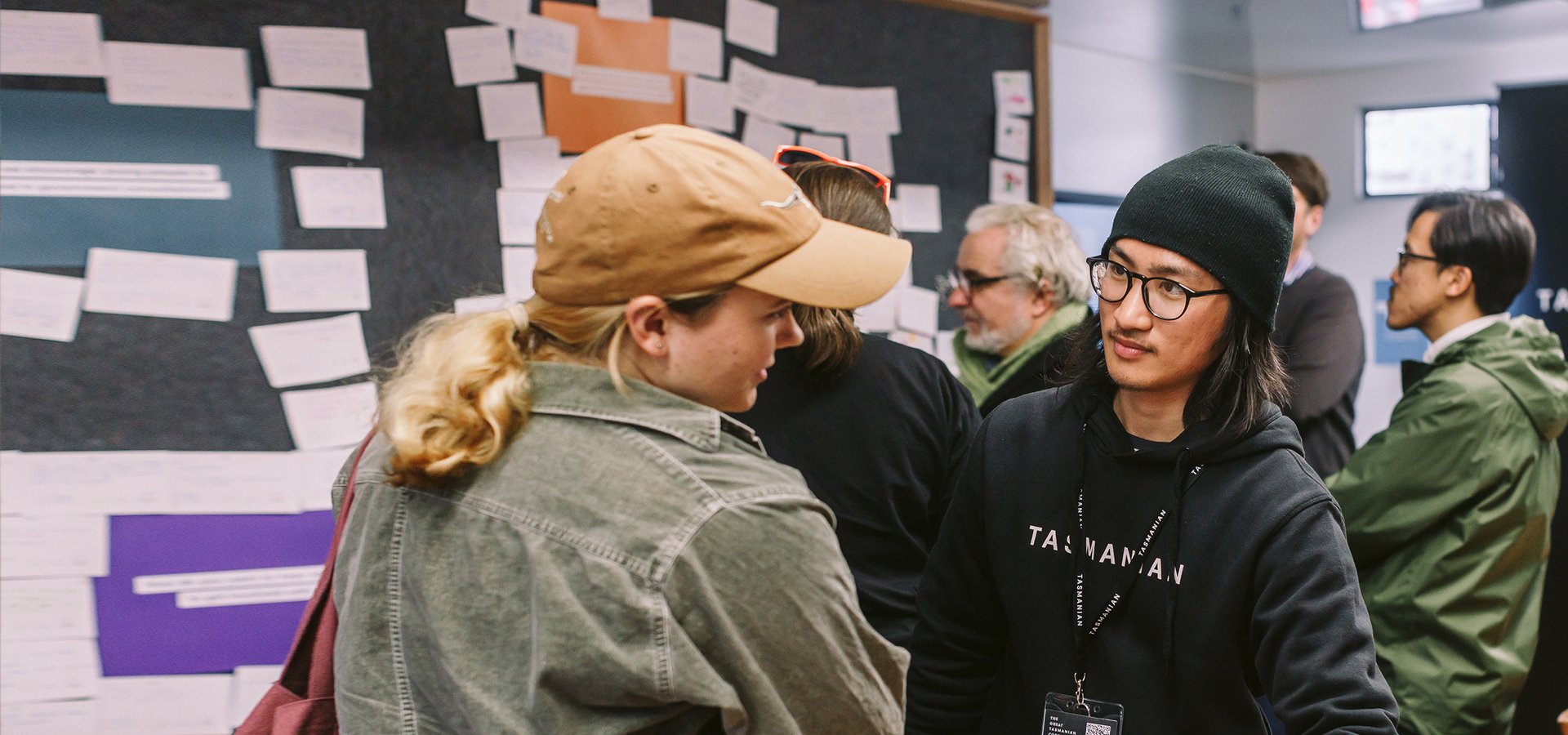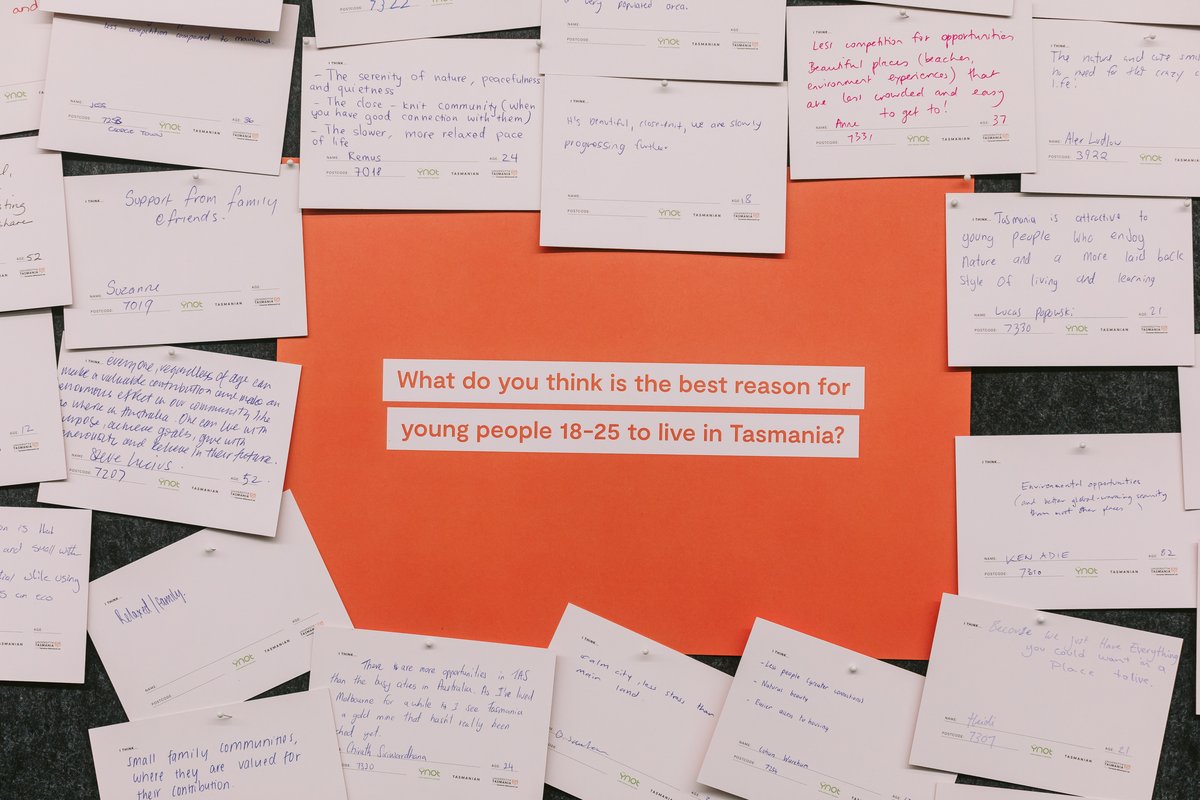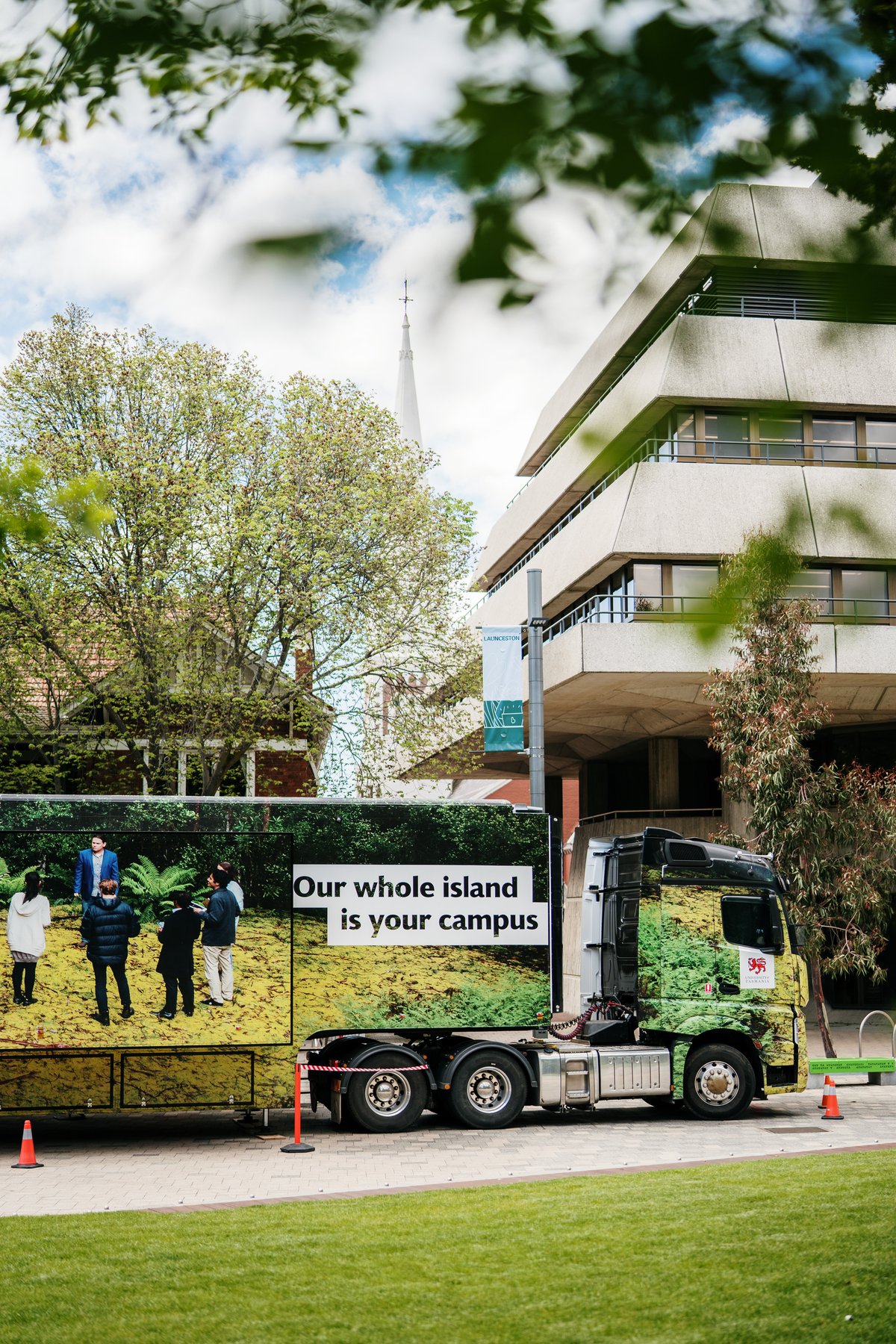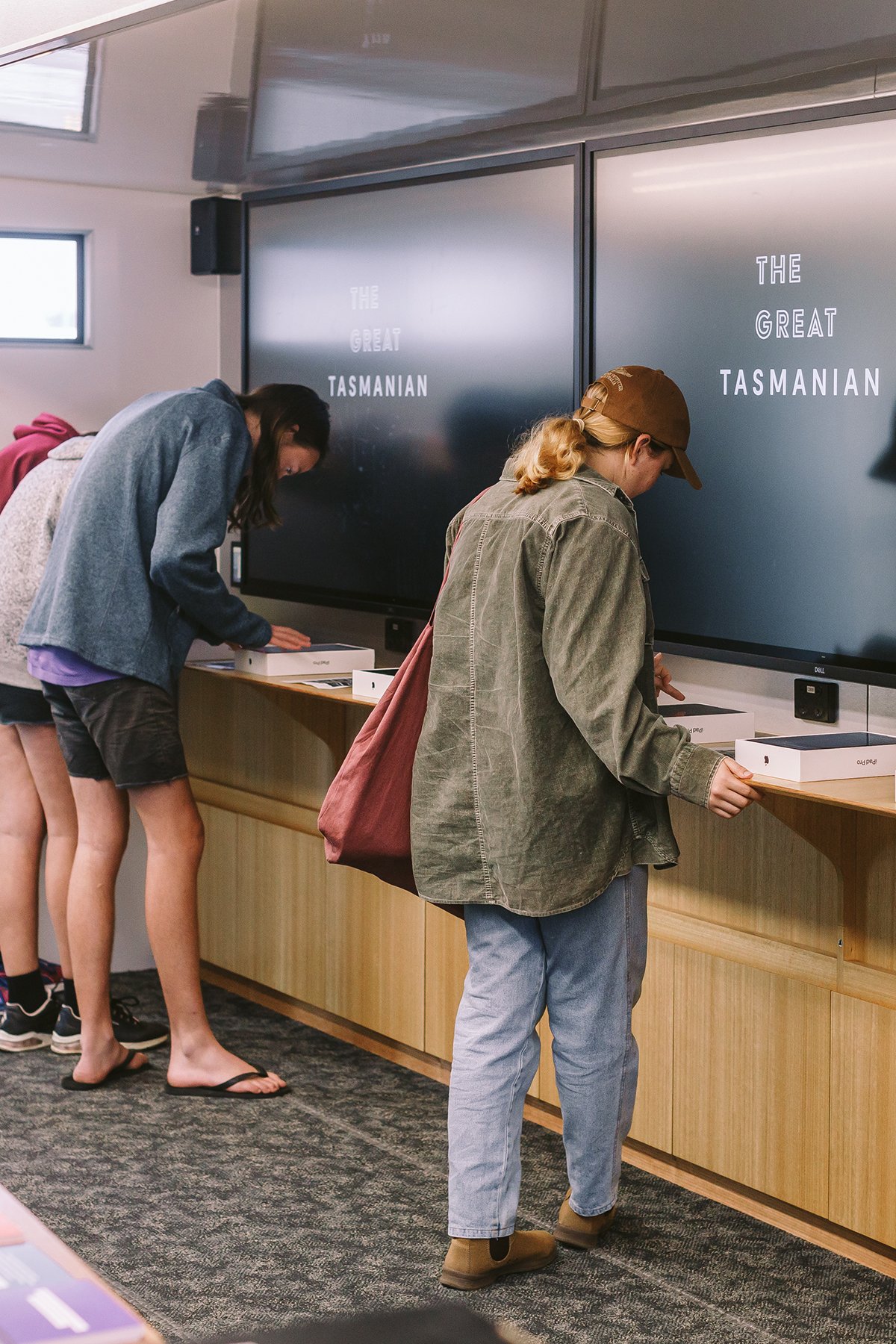Tasmanian Youth Story

What’s it like being a young person in Tasmania?
This was the question posed to the young Tasmanians who participated in this project. They shared their stories and experiences about what life is like for them now, and the Tasmania they want to see in twenty years.
We spoke to 185 young Tasmanians aged 18-25 years through interviews, 3 online workshops and 15 roadshow workshops.
This is what they said.
I think older people just need to listen to us. They had different experiences growing up, so they need to try and understand what it’s like for us.
Age 19 (she/they) Northern Tasmania
Young Tasmanians interviewed
from north-west Tasmania
from northern Tasmania
from southern Tasmania
Aged 18-19
Aged 20-21
Aged 22-23
Aged 24-25
Working only (14 full-time)
Studying only
Working and studying
Neither working or studying
identified as from a diverse background
identified as she/her or she/they
identified as he/him or he/they
identified as they/them
Research methodology was developed in partnership with young Tasmanians, Brand Tasmania, The20, the Youth Network of Tasmania (YNOT) and the University of Tasmania Tasmanian Behavioural Lab. The consultation process consisted of a series of one-on-one interviews and regional group workshops, informed through online co-design workshops with young Tasmanians.
The project aimed to capture the unique experiences of young Tasmanians and understand what sets Tasmania apart as a place to live, work and play. Throughout the interview process, we asked young people to describe what they think is special or uniquely Tasmanian; the important issues impacting their journey to adulthood; what factors of the island push them away or pull them to stay; and their experiences engaging with community stakeholders and decision-makers. A statewide roadshow followed the interviews, with consultation activities designed to validate the interview findings and add further insights of young Tasmanians’ experiences, and capture ideas and solutions to address the issues in a Tasmanian way.
If you're not into sports, then it's really hard to find stuff to do, like recreational activities and stuff like that. And I think that's why a lot of young people get into trouble or turned to, you know, like drugs and alcohol and stuff like that. Because they're bored.
Age 24 (she/her) North-West Tasmania

I’m really proud to tell people I’m Tasmanian.
Age 23 (he/him) Southern Tasmania
The Tasmanian Youth Story Themes
The pride in Tasmania that young people have expressed in this consultation clearly transcends most of the concerns and problems that they have identified, and bodes well for their long-term connection to the state. Many may leave at some point in their lives; but most see themselves as coming back eventually, whether to raise families or to retire. And those that stay are likely to remain champions for Tasmania and its people.
But Tasmania can’t afford to take its young people for granted. It now remains to us to rise to the task of welcoming young voices into the process of creating the state that young Tasmanians want to see in twenty years. Young Tasmanians are observing, and will remember, the choices made now by decision-makers and older Tasmanians. How we approach the challenge of creating a future Tasmania that young Tasmanians of today want to live in will determine if this island can retain its greatest untapped asset.
These are the themes we heard from young people:
-
1
We’re proud.
Where previous generations were uneasy about their Tasmanian identity, we’re proud to be Tasmanian, and to embrace all the things that make this place so special. When something is Tasmanian, we know it will be good, so we make sure everyone knows about it. We know Tasmania used to be looked down upon by the rest of the country, but we are happy that the world now sees just how special our little island is — even if we sometimes are left off maps.
-
2
We have a sense of place.
We love Tasmania’s natural beauty and small towns. We know that this place is special, from our buildings and architecture, local art installations, events and produce, arts and culture, to our environment and wildlife. It feels like a place just for us. There aren’t many places where you can drive for an hour in any direction and be in an entirely new world – from a beach to a mountain, in a farm or city, and rainforest or scrub. We feel connected to this place and find comfort when we see familiar landmarks that signal our home.
-
3
We’re connected.
Tasmania is a place where we look each other in the eye and everyone knows everyone. Our communities unite and support us, and connect us to opportunities and help when we need it. We have an unspoken connection to each other because we know we’ve had similar experiences. But our communities can also inhibit us. When everyone knows everyone’s business, it can be really hard to seek help or move past tough times.
-
4
We’re often worried and frustrated.
We can feel frustrated with Tasmania as it currently stands. We worry about big issues impacting our lives and ability to thrive – whether we’ll ever be able to afford a house, what kind of a world we’ll face with climate change – and we struggle with daily challenges around transport, employment, healthcare and education. But we feel our voice is valued less than that of people who used to be young. We know that problems aren’t always easy to solve, but we want to be heard and have our concerns and ideas taken seriously.
-
5
We want to see more acceptance of differences.
While Tasmanians love the fact that our island is different from the mainland, and lean into those qualities, people’s attitudes towards difference within Tasmania can feel like a different story. Us young Tasmanians are more likely to be comfortable with new ideas and identities, but it can be hard to fit in if you are a bit outside the mould. We want to feel like we belong here, safe to express who we are, and welcomed into our communities, not rejected for being ourselves.
Read the Tasmanian Youth Story
Tasmanian Youth Story

If I can leave a message, it will be to just talk to people, make a conversation. Discussions create understanding.